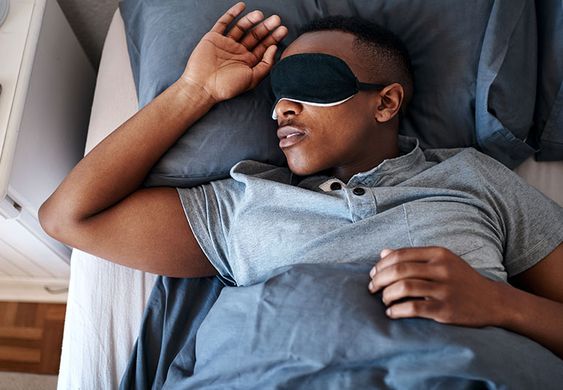Introduction
A sound night's sleep is crucial for our physical and mental well-being. In today's fast-paced world, getting enough sleep can be a challenge. Many factors can interfere with our sleep, from stress and anxiety to light pollution and noisy environments. One simple yet effective solution to improve sleep quality is using a sleep mask.

Sleep masks, also known as eye masks, are designed to block out light and create a completely dark environment for sleep. While they may seem like a simple accessory, sleep masks offer a surprising number of benefits. By blocking out light, sleep masks encourage the production of melatonin, a hormone that regulates our sleep-wake cycle. This can help to regulate your natural sleep patterns and make it easier to fall asleep and stay asleep throughout the night.
Benefits of Using Sleep Masks
Sleep masks offer numerous benefits for improving sleep quality. Here are just a few:
Promote Deeper Sleep
By blocking out light, sleep masks help to create a conducive environment for deep, restful sleep. This allows your body to fully relax and repair itself overnight.
Reduce Eye Strain
If you spend long hours staring at screens, sleep masks can help to reduce eye strain and fatigue. The darkness allows your eye muscles to relax, which can also help to prevent headaches.
Block Out Distractions
Sleep masks can be especially helpful for people who are sensitive to light or noise. By creating a barrier against external stimuli, sleep masks can help to minimize distractions and promote relaxation.
Choosing the Right Sleep Mask
Not all sleep masks are created equal. When choosing a sleep mask, consider the following factors:
- Material: Look for masks made from soft, breathable materials like cotton or silk.
- Fit: The mask should fit snugly but comfortably, without putting pressure on your eyes or face.
- Light Blocking Ability: The primary function of a sleep mask is to block out light, so choose a mask that is opaque and effectively blocks out all light sources.





